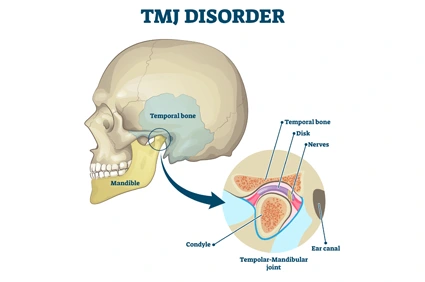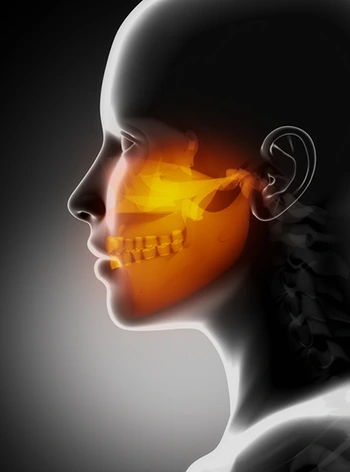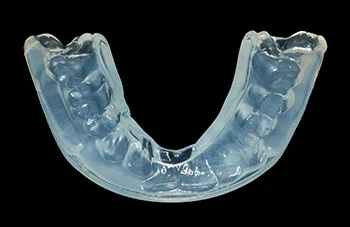The temporomandibular joint, or TMJ, is what connects your jaw to your skull. If you’re like most people, you may not give it much thought. However, you use it a lot- when you chew, swallow, and talk.
TMJ disorder, or TMD, is a condition in which something has gone wrong in the jaw, primarily due to inflammation, overuse, or injury.

In some cases, TMJ is tied to sleep apnea. If you have sleep apnea with TMJ, Quality Sleep Solutions can help. In this article, we’ll explain more about the functionality and benefits of mouthguards for TMJ disorder.

In more severe cases, surgical intervention is often recommended.
One of the most common reasons that a mouthguard is recommended is because this dental appliance can ease some of the symptoms associated with TMJ.
A TMJ mouthguard can be worn at night to help stop nighttime bruxism, which will ease some of the pain. There are several different types of mouthguards on the market. Some are designed to stabilize teeth, while others are designed to reposition the jaw. However, the latter should not be used unless under the direction of a dental professional.

In most cases, the cause of TMJ is unclear. However, there are several possible causes for TMJ, including:
There are also a few factors that may increase your risk of TMJ, including:
If you are considering using a mouthguard for your TMJ pain, it’s important to know about all of your options. Mouthguards are classified based on type, pain relief, and modality.
There are two primary classifications of TMJ mouthguards:
A stabilization splint is designed to cover the entire arch of teeth to prevent clenching and bruxism. They may be hard or soft and ease pain associated with TMJ by preventing the jaw muscles from overworking or overextending.
A repositioning splint pulls the lower jaw forward. When you begin treatment with this type of splint, it may need to be worn all day and all night. However, once the pain begins to ease, the dentist will create a treatment plan for long-term use and you may not need to continue wearing it all day.
Pain with TMJ can be acute or chronic.
In some cases, TMJ only happens once in a while. In this case, a temporary mouthguard can be used. These mouthguards are often designed for short-term use and are disposed of once the TMJ episode is over.
On the other hand, for some patients, TMJ is chronic and lasts for a long time. In this case, a mouthguard can help ease the symptoms. However, a more permanent solution will need to be used to resolve the issue.
Mouthguards may also be obtained through the dentist’s office or over-the-counter.
There are three types of OTC mouthguards on the market:
If you are going to use a mouthguard for TMJ, a custom option is the best.
You can obtain a custom mouthguard through the dentist or by mail order. You get a kit and create the impression of your teeth. This will be sent to the lab for the fabrication of your mouthguard and the company will keep the impression on file in case you need a new one in the future.
There are several features that you should look for in a TMJ mouthguard, including:
While a mouthguard can be a good temporary solution for treating TMJ, it is not a permanent solution. After all, a mouthguard doesn’t treat the root of the issue, just the symptoms.
Quality Sleep Solutions offers a holistic approach. We offer a painless approach to diagnosing and treating your sleep disorders. We take the time to communicate with you about the status of your overall health. We fabricate a custom appliance that will allow you to breathe without experiencing any sleep apnea episodes.
Our approach is affordable and convenient, and in most cases, medical insurance will cover a portion of treatment. We have 5 convenient locations in South Carolina to serve you. Schedule your consultation today to learn more about our sleep apnea solutions.
Get Answers